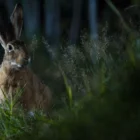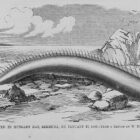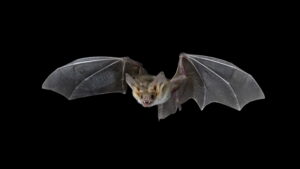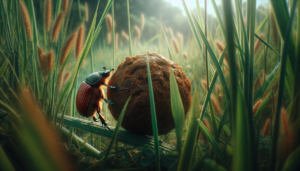Why do opossums “play dead”?
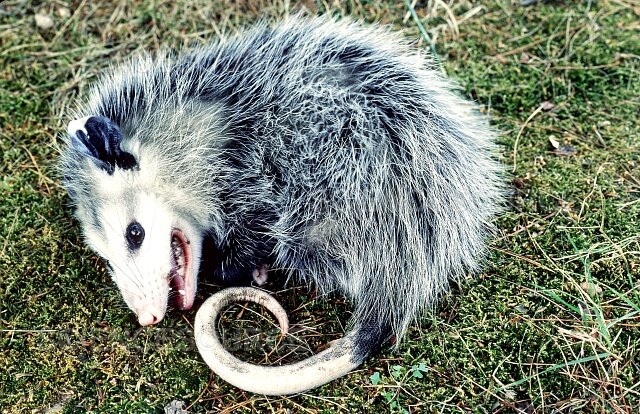
In the animal kingdom, survival often necessitates ingenious and sometimes peculiar strategies. One such fascinating behavior is exhibited by opossums, those nocturnal, solitary creatures found primarily in the Americas. When threatened or cornered, opossums have a rather unique defense mechanism – they “play dead.”
This behavior, known as “playing possum“, is an evolutionary adaptation that has captivated scientists and observers alike, prompting a deeper exploration into its mechanisms and the evolutionary advantages it offers to these remarkable creatures.
Play dead
The opossums “playing dead” behavior is a strategic defense mechanism triggered in response to a threat. When threatened by a predator, such as dogs, foxes, or other animals, the opossum displays a set of behaviors that imitate death. It falls onto its side, becomes limp, and may emit a foul-smelling odor, reminiscent of a decaying creature. The opossum’s mouth may be left open, with its tongue hanging out, giving the impression of a lifeless body. This act is not a conscious decision but an instinctual response triggered by stress and fear.
The evolutionary advantages of this behavior are manifold. Primarily, “playing dead” serves as a form of bluff that deceives predators. Many predators prefer live prey and may lose interest in what appears to be a lifeless, potentially diseased, or spoiled meal. This defense mechanism buys time for the opossum, allowing it to escape while the predator is convinced that the threat has been neutralized.
Moreover, the opossum’s act of playing dead might also trigger the predator’s instinct to scavenge, leading it to leave the area to search for more suitable prey. This further aids the opossum in avoiding confrontation and potential harm.
Body changes
The physiology behind this behavior is as intriguing as the behavior itself. When an opossum enters this “playing dead” state, it undergoes a reduction in heart rate, metabolism, and respiration. Some studies suggest that this state can last for a few minutes to several hours, allowing the opossum to appear convincingly deceased. While in this state, the opossum remains alert and aware of its surroundings, ready to snap back into action the moment the threat has dissipated.
This behavior is not unique to opossums alone. Similar strategies are observed in other animal species like certain snakes, beetles, and fish. However, the opossum’s display of “playing dead” is one of the most elaborate and effective among these behaviors.
The “playing dead” strategy also highlights the adaptability and resilience of these marsupials. Opossums, despite being among the more primitive mammals, have thrived due to their ability to adapt to various environments and employ survival tactics like this unique behavior.
However, this defense mechanism is not without its limitations. Some predators, especially those more experienced or discerning, might not be deceived by this act. Additionally, human activity, such as vehicle collisions, often proves fatal to opossums as their “playing dead” strategy is ineffective against fast-moving machines.
The phenomenon of opossums “playing dead” is a remarkable display of adaptive behavior in the face of danger. This unique evolutionary strategy showcases the ingenuity of nature, where survival hinges not only on strength and agility but also on clever behavioral adaptations. The opossum’s ability to convincingly feign death in the face of danger remains a captivating and extraordinary aspect of the animal kingdom, underscoring the fascinating ways in which creatures evolve to navigate the challenges of their environment.


